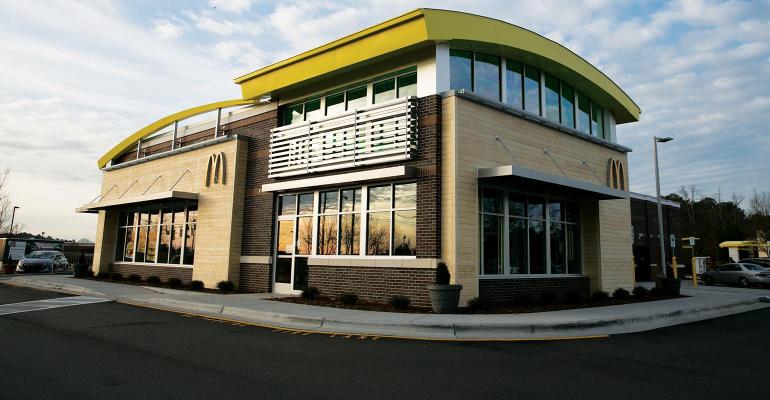Starting a new restaurant brand, be it traditional or virtual, is easier now than ever. Finding the resources, experts, and tools is a matter of tapping into a vast pool from industry networks and the internet. Despite the prevalence of these crucial elements, there remains a common pitfall in creating a new restaurant brand that’s difficult to overcome. That pitfall often adds to the storied failure rates in this industry.
It’s called survivorship bias, and here’s why you should know about it and avoid it.
Survivorship bias is a cognitive bias that occurs when people focus on successes and ignore failures. Or, at least, pass them off and downplay the potential they have for learning. An example of this can be found in research on WWII bomber planes. Researchers studied the planes that had returned from battle (i.e. “surviving” planes) to make recommendations on the areas of the plane that required reinforcement.
As the story goes, an engineer realized that the planes that didn’t return were the ones worst-hit. Therefore, in his realization, the spots showing no damage on the surviving planes denoted the critical areas that should be reinforced to ensure a higher rate of return. Planes hit there never returned, but because the research focused solely on data from the planes that returned, the teams were misguided by survivorship bias.
In the context of the restaurant industry, we encounter this when enterprising industry leaders look at the restaurant brands that have succeeded and try to emulate their strategies. However, by doing so, they ignore the vast number of failed restaurants and the lessons that can be learned from them.
The dangers of survivorship bias in creating new restaurant brand concepts are manifold. First and foremost, leaders with survivorship bias are likely to overlook the many factors that contribute to a restaurant's failure and the lessons that can be learned from them. Instead, they focus on a few factors that may have contributed to a successful restaurant like an operational feature, location, or even the brand name. This can lead to an incomplete understanding of all of the challenges that the brand had to overcome, and the market realities of when that brand was founded.
For example, modeling a new restaurant after McDonald’s may seem like a great idea. After all, it’s one of the most successful restaurant brands in the history of restaurant brands. Doing so, however, overlooks the benefits the brand has because of its size today, the realities of the culture and competitive landscape from when it was founded until today, and all of the challenges, failures, and innovations that were developed along the way.
Back in the 1950s, there weren’t nearly as many restaurants as there are today. Only 25% of food consumed was done so “away from home.” Today, there are so many restaurant brands coming and going, it’s difficult to keep track. With that level of competition, a simple cheeseburger restaurant with a possessive brand name like McDonald’s doesn’t stand a chance. However, back in the ’50s, the setting was ripe for an innovative brand like McDonald’s to start and grow (even with a brand name convention that’s common and unremarkable).
Survivorship bias can lead restaurateurs to make decisions based on flawed assumptions. They may assume that because a particular strategy or tactic worked for a successful restaurant, it will work for their restaurant as well. However, this is not always the case. Every restaurant experiences a unique landscape and faces different challenges.
Furthermore, there are aspects of a successful restaurant brand’s journey that are simply unknown to anyone outside of the organization. These important, pivotal aspects and the decisions made along the way have directly affected outcomes. And there is no way to duplicate every aspect again because that time has simply passed.
Survivorship bias can also lead restaurateurs to be overconfident in their abilities. They may believe that because they have seen other restaurants succeed, they will be able to replicate that success without fully understanding the challenges involved. This overconfidence can lead entrepreneurs to make risky decisions, such as investing too much money in a particular strategy or expanding too quickly without effective infrastructure. Ultimately this leads to failure in some form.
Founding visionaries must look to existing restaurant brands from both the success and failure sides of the story. And even then, this scrutiny shouldn’t lead to emulation. Instead, founders should evaluate ideas gleaned from this effort against current market conditions including location intelligence, marketing strategies and technology, operational models, and the various other factors that make a successful company work.
To create a new restaurant brand that succeeds, leaders must conduct thorough research, collaborate with industry experts, and analyze data on the restaurant industry. By doing so, restaurant leaders can gain a more complete understanding of the challenges and opportunities in the industry and make more informed decisions about their businesses.
Restaurant leaders should also be willing to experiment and try new strategies, rather than simply relying on what has worked for others. By testing different strategies and tactics, leaders can learn what works for their unique offering and develop a more nuanced understanding of what is getting traction with today’s culture and consumers.
Survivorship bias is highly tempting for founders, but understanding how to avoid this pitfall can help new restaurant concepts get open, stay open, and rapidly scale. No single restaurant brand will have all the answers because of all the factors involved in making success happen. And direct emulation is a horrible way to build a brand. After all, you can’t be a better McDonald’s than McDonald’s. It’s a losing battle.
 AUTHOR BIO
AUTHOR BIO
Joseph Szala serves as managing director for Vigor, a restaurant marketing agency, the author of “The Bullhearted Brand: Building Bullish Restaurant Brands That Charge Ahead of the Herd,” and the host of the Forktales podcast.





